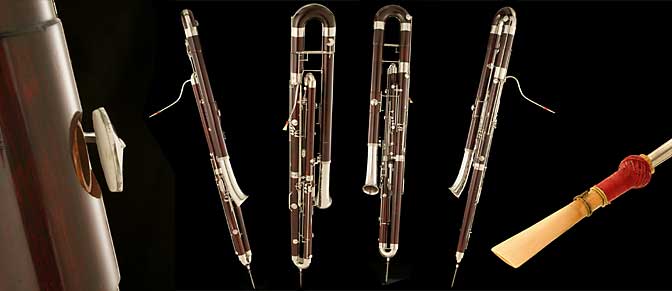Palm Beach Chamber Fest closes with rarities by Donizetti and Dvorak
The intimate Helen K. Persson Recital Hall at Palm Beach Atlantic University was the scene of a real rarity Friday night as the Palm Beach Chamber Music Festival opened their final program of the summer with music of Donizetti.
Donizetti’s Trio for flute, bassoon and piano has certainly been overshadowed by his contributions as a composer of opera. Actually he wrote a fair amount of chamber music, although none of it is substantial enough to add much to his status.
The Trio is a pleasant work, with a bel canto lyricism fairly close to his operatic writing. While it makes no attempt to do anything but entertain, it achieves that in a most agreeable manner. All three players seemed to be enjoying themselves, and this was communicated well to the audience.
Albert Roussel’s Duo for bassoon and double bass on the other hand is a truly wacky work, written in 1925 in honor of double-bass virtuoso and conductor Serge Koussevitzky.
It is a strange bird, for a strange combination of instruments. While short in duration, it conjures up rhythmic tensions and dissonant counterpoint typical of the composer as it rushes towards its ironical but sophisticated close. Michel Ellert’s winning bassoon playing contrasted well with the subtle double-bass of Jason Lindsay.
Ingolf Dahl’s Concerto a tre for clarinet, viola and cello dates from 1946 and is clearly in the mainstream of American composition of that period, although its composer was an expatriate having been born with the name Walter Ingolf Marcus in Germany to a German father and Swedish mother. He emigrated to the United States in 1939 and settled in Los Angeles where he quickly absorbed the musical culture. His sophisticated harmonic and contrapuntal writing made the three movement composition a joy to listen to. Michel Forte negotiated the tricky clarinet writing with ease, and his partners were equally up to their busy tasks.
Local composer Clark McAlister was on hand to introduce his Odyssey for flute, clarinet and bassoon. Originally written to provide additional repertory for this combination of instruments, McAlister took as his point of departure Homer’s epic, and, in this case, the journey and transformation of these instruments. At only six minutes, the journey was a short one as the instruments seemed to interweave in a threnody of emotionally restrained harmonic fluidity. It did not overstay its welcome, but it did not challenge the listener very much either.
Dvorak’s String Quintet in G major dates from the composer’s 34th year. It was awarded a prize by the Bohemian Society of Artists and, although well written, nicely developed, and sonorous, is not among Dvorak’s finest chamber-music achievements. The weighty sound leans heavily towards the orchestral, and the intimate give and take of the best chamber music is not always present. Moreover, the melodic content, excepting the slow movement, is not as distinguished as his best efforts.
The festival quintet gave it their all, and ripped into the rhythms, accents, and phrases as if a masterpiece were unfolding. Intonation was good, and the ensemble almost convinced that what was being heard was of the composer’s first rank.
This final program concludes the Palm Beach Chamber Music Festival’s 2010 schedule. The good news is that plans are afoot to continue next year with the festival’s 20th season, and given the excellent venues, the superior musicianship, and inventive programs, one can hardly wait to see what they will be doing next.
The program will be repeated 2 p.m. Sunday at the Crest Theatre in Delray Beach and 8 p.m. Monday at the Eissey Campus Theatre in Palm Beach Gardens. www.pbcmf.org.
Posted in Performances
Leave a Comment
Sat Jul 31, 2010
at 2:41 pm
No Comments
